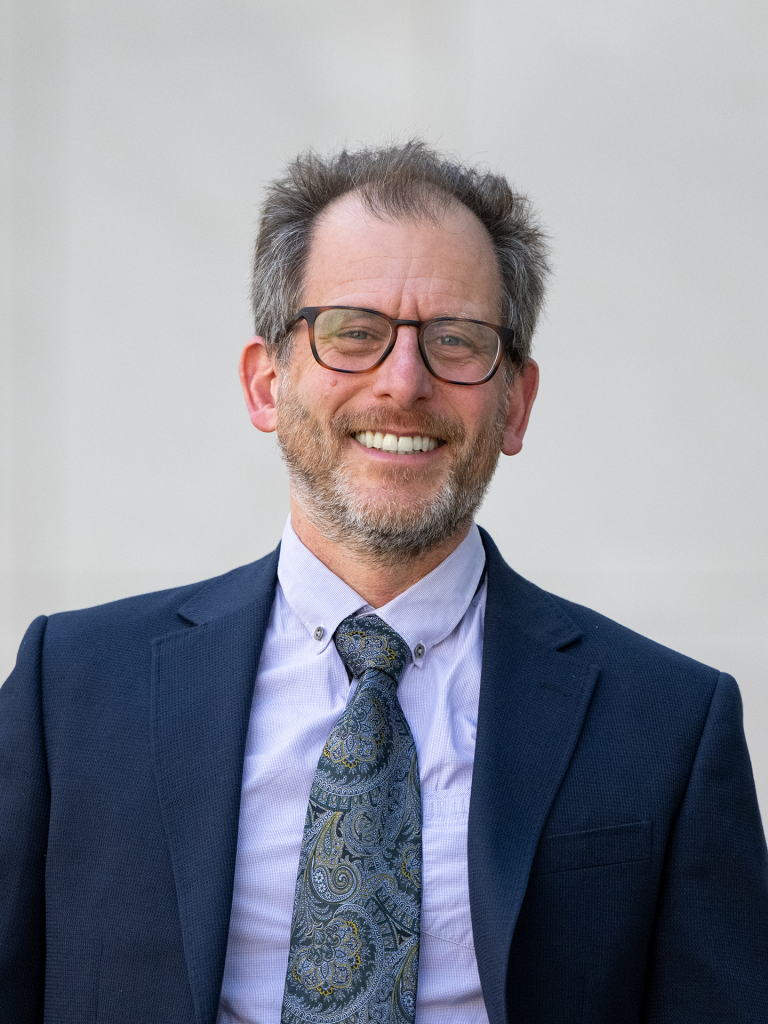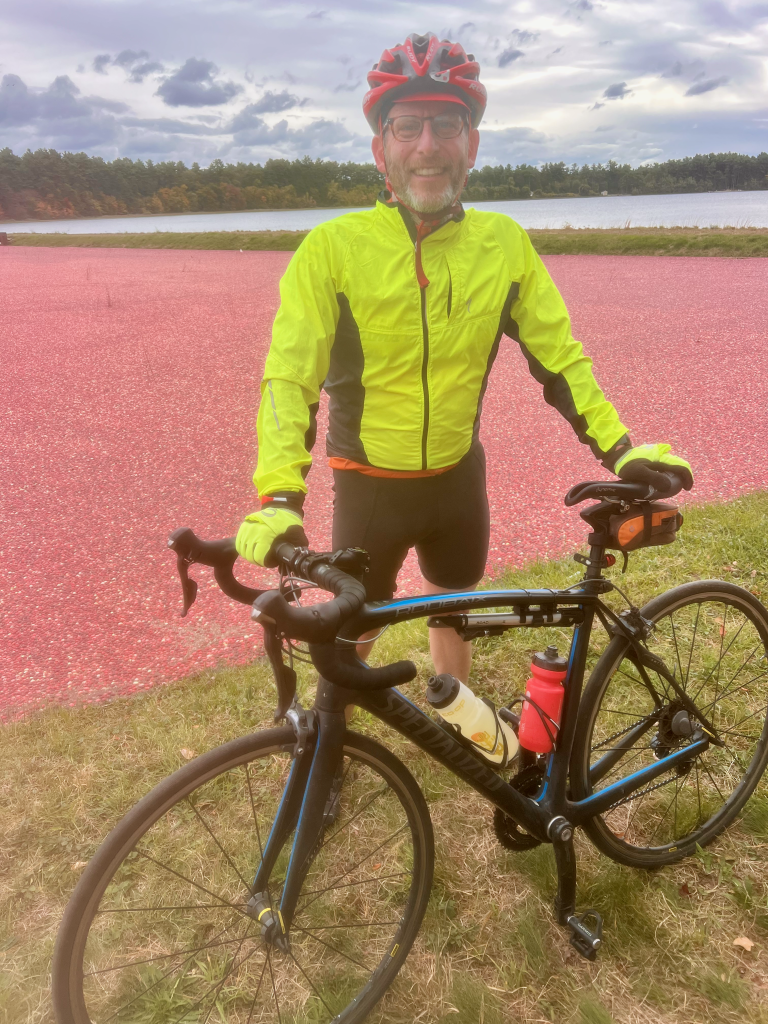Roger Levy New Chair of the Faculty
Roger Levy, Professor of Brain and Cognitive Sciences, will succeed Mary Fuller as chair of the faculty on July 1, 2025. He has served as chair-elect during the current academic year and is grateful to Mary and to associate chairs of the faculty Anette “Peko” Hosoi and Elly Nedivi for their leadership and for teaching him by example. Joining Roger in leading faculty governance for the next two years will be Professor Bevin Engelward (Biological Engineering) and Professor Erica James (Urban Studies and Planning), who will serve as associate chairs of the faculty.
Roger was born in Philadelphia, Pennsylvania and grew up in Tucson, Arizona where he earned his BS in Mathematics at the University of Arizona. He developed a deep early interest in population genetics, which during three years living and studying in Singapore, Taiwan, and Japan evolved into a passion for languages and the human sciences, subsequently leading to graduate work in anthropology and then linguistics at Stanford University, where he obtained his MS and PhD. To round out the training on which his present research program stands, he then spent a year as a postdoctoral fellow at the School of Informatics at the University of Edinburgh before taking his first faculty position in the Department of Linguistics at the University of California, San Diego. After nearly a decade at UCSD, Roger joined the Department of Brain and Cognitive Sciences at MIT in 2016, where he continues to direct the world’s first Computational Psycholinguistics laboratory.

Roger’s research program lies in cognitive science at the intersection of artificial intelligence, linguistics, and psychology. His work focuses on theoretical and applied questions in the fundamental architecture of natural language processing and acquisition. Language allows humans to represent and communicate an unboundedly expressive range of meanings across diverse contexts using finite knowledge and resources. Children acquire this knowledge to become proficient native speakers in just a few short years. How is all this possible? To address these questions, Roger’s research combines computational modeling, psycholinguistic experimentation, and analysis of large naturalistic language datasets. He is best known for using information theory and Bayesian probability to develop accounts of human language comprehension and production, leading to three tightly related theories: surprisal (how expectations regarding linguistic input are largely determinative of processing effort in language comprehension), noisy-channel language processing (robustness and error-correction mechanisms in comprehension), and uniform information density (how speakers’ choices tend towards distributing information uniformly across an utterance). In recent years, Roger has increasingly applied these ideas and techniques to gain insights into how artificial neural network models of natural language – now known as “Large Language Models” (LLMs) – implicitly acquire key correlates of human grammatical knowledge. He uses these insights in turn to better understand human language processing, and to elucidate the similarities and differences between human and LLM linguistic capabilities and behavior. Roger also has a long-standing interest in statistical and causal modeling problems that arise in language science. His research accolades include the Sloan Research Fellowship, the NSF CAREER Award, a Fellowship at the Center for Advanced Study in the Behavioral Sciences, and most recently a Guggenheim Fellowship.
Soon after joining MIT, Roger developed a new undergraduate class, 9.19: Computational Psycholinguistics, for which he won MIT’s School of Science Teaching Prize in 2023. He has taught advanced seminars on a range of cognitive science topics alone and with colleagues, and has recently developed a new graduate class on quantitative inference in the brain and cognitive sciences. He considers research mentorship among the most rewarding aspects of his academic life and was honored to receive his department’s Postdoctoral Association Award to an Outstanding Mentor in 2021.
During his time at MIT, Roger has also developed a deep interest in understanding and serving the community at MIT and beyond. He was a co-organizer of MIT’s 2017 and 2018 “Day of Action” events, dedicated to fostering open-minded dialogue among colleagues with diverse backgrounds and views. From 2018 through 2023 he served as chair of MIT’s Committee on the Library System, which collaborated with the MIT Libraries to develop the Framework for Scholarly Contracts, now endorsed by nearly 200 institutions and organizations around the country. He has helped launch two open access scholarly journals in cognitive science and psycholinguistics, and in 2024-2025 he has served as the president of the Cognitive Science Society.
Outside of his academic work, Roger enjoys music, exercise, learning languages, and spending time with family and friends. He’s a regular swimmer with MIT Tech Masters, loves spending a day off cycling to Harvard (MA) and back, and was a regular violist with the MIT Chamber Music Society for a number of years. The most famous photograph he’s taken is the cover image for “Losing Pravda.” These days, his two young children fill up much of his spare time outside of work: he loves how his daughter coos and isn’t too hard to get to sleep, and how his son is surprisingly effective at keeping his yoga practice reasonably regular.

Cycling during the October 2023 cranberry harvest near Rochester, MA
The role of chair of the faculty includes serving as a problem solver, communicator, and community builder in leading MIT’s faculty governance system; serving as the highest-level representative of the MIT Faculty; and engaging in outreach to departments and the Schools/College. Roger looks forward to fulfilling this role so as to support MIT’s mission “to bring this knowledge to bear on the world’s great challenges.” His planned priorities as chair include enabling and catalyzing broad faculty participation in shared governance; advocating for MIT’s role as a bulwark of civil society; promoting research continuity and strong institutional support for faculty; strengthening academic freedom in its fullest sense; supporting ongoing faculty governance work on the undergraduate program; contributing to Institute-wide conversations and policy on the implications of AI for MIT’s future activities; and fostering shared understanding and recognition of common core values among Institute faculty. He is especially looking forward to the opportunity the role of the chair affords to meet new colleagues and strengthen connections throughout the Institute.


